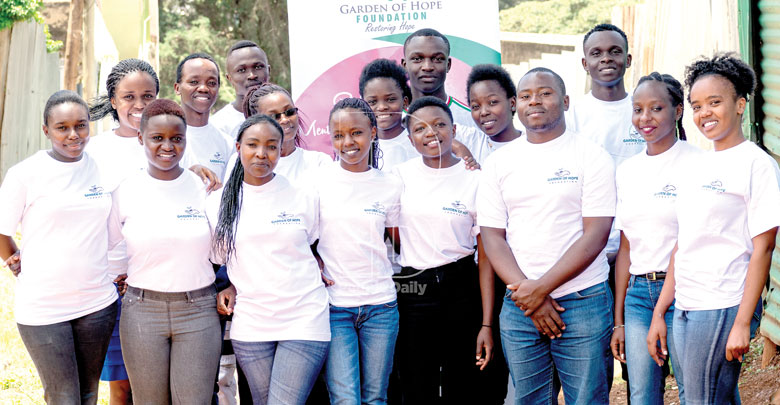Garden of Hope Foundation: Giving youth a fighting chance
By Charles Muasya, September 4, 2019It was easy to notice Austine Owuor even though he did everything not to be noticeable. For two months, while at the Garden of Hope Foundation school mentorship club, he did not utter a word, used to sit at the back and rarely participated in group activities.
Owuor suffered self-esteem related challenges: consequently, he lacked skills in public speaking, leadership as well as managing stress.
Upon realising this, one of the club members took it upon himself to talk to Austine, who opened up and explained how the violence at home forced him out of school. His parents would beat him up and even force him to sleep out.
Austine was then taken through a one-month guidance and counselling programme, and not only did his public speaking skills improve, but he was also elected the club leader.
Austine is not the only Kibra youth to go through Garden of Hope Foundation’s hands. Kenneth Otieno gained practical skills during his time at the facility, which enhanced his competence in social work.
“The foundation through mentorship programme has given me a great opportunity to give back to the community as well as enhance my skills,” said Otieno, who, through volunteering and internship, gained knowledge on issues to do with menstruation, a topic avoided by men and society.
For Eric Omondi, volunteerism gave him the opportunity to view life from a different perspective that one needs to be strong and patient to achieve goals in life.
Informed decisions
With four main programmes: mentorship, leadership development and entrepreneurship, internship and volunteer, water, sanitation and hygiene, the foundation restores hope to undeserved youth, children, women and girls from urban slums and rural communities.
It was borne when Victor Odhiambo, the founder and executive director, discovered the challenges women and girls go through to access sanitary products.
After conducting a number of pads drive through online campaigns and football tournaments, he decided to set up the foundation, which benefits schools in Samburu, West Pokot, Kajiado, Kitui and Nairobi, particularly Kibra.
The mentorship programme targets high school-leavers to keep them busy and avoid vices that can make them drug addicts and law breakers as they seek their next step in life.
They are also supported in making informed decision through interactive sessions, peer education training, peer-to-peer mentorship as well as group mentorship.
At least 1,100 youth aged between 17 and 35 had their lives impacted last year, with close to 5,000 having undergone guidance and counselling since 2014 when the facility started.
Matching skills
Floridah Anyango, the foundation programme coordinator, says the programme addresses challenges young people face such as low esteem, drug abuse and gender-based violence.
The internship and volunteer programme, she says, seeks to build professional competency in community development among the youth both in formal and informal set-ups through creating volunteer opportunities and promoting the act of giving back and supporting the community.
“None of us got to where we are on our own. Somebody believed in us; someone held our hands and encouraged us,” said Anyango. At least three in five young people who successfully complete the programme get employed within a month.
Through the leadership development and entrepreneurship programme, 70 young people graduated in 2018, all aged between 17 and 35, with a majority landing jobs in formal and informal units.
It involves training Kibra youth to acquire knowledge and skills relevant to the labour market, including small business development, facilitating disadvantaged youth to access job opportunities and mentoring them as they transition from school to work.
Anyango avers that through water, sanitation and hygiene (Wash) programme, 1,500 girls received menstrual products, with menstrual hygiene management (MHM) information and safe hygienic hand washing practices taught to primary school children.
The aim of this programme is to build the capacity of marginalised communities and changing their behaviour when it comes to MHM.
Odhiambo says the organisation strives to empower the youth with skills needed to address life challenges, which impede them from getting a chance to better their livelihoods.
“One of our major goals is to impact the lives of the young in Kibra through the various programmes we run. We have surpassed the target we set out last year and had impacted lives of 2500 youth as opposed to the expected 1,100,” said Odhiambo.
